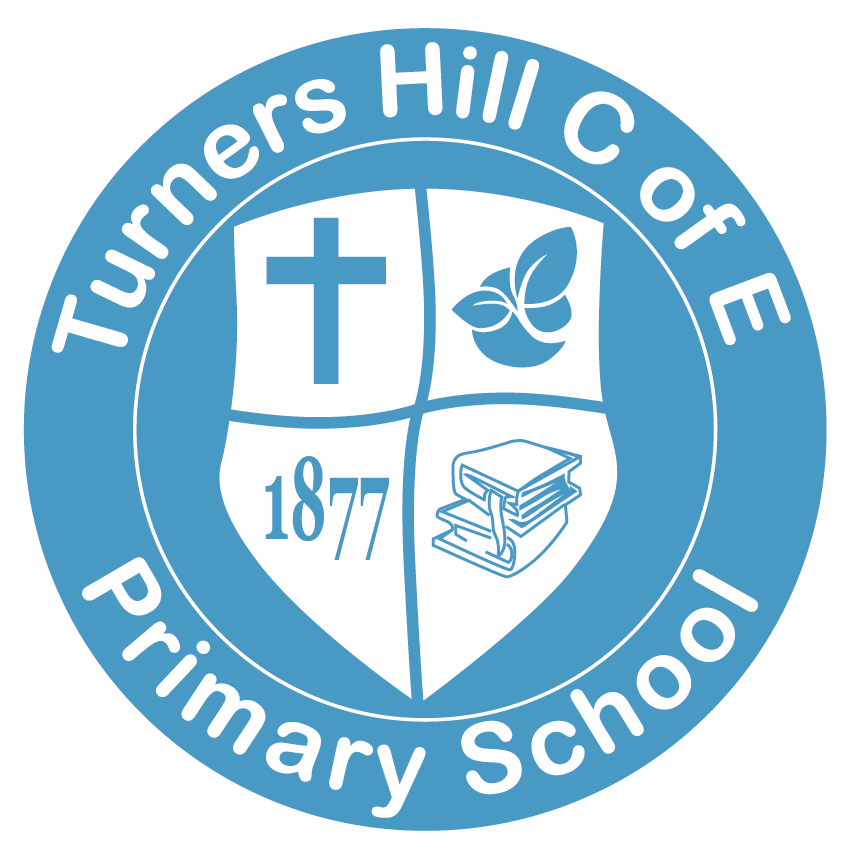
Eco-friendly and Forest School
Renewable Sustainable Energy
We have installed 24 solar photovoltaic panels which will also generate electricity. A large display unit near the school entrance shows everyone how much energy is produced and how much CO2 saved. The School is looking at further renewable projects due to the significant education, financial and environmental benefits. If anybody would like to help us to become a greener school, we would love to hear from you.
Sustainable Growth
In the past, we have kept hens for their eggs and for meat.
However, now every year we still enjoy the process of watching eggs hatch in an incubator in Willow class. The chicks are then sent back to the farm.
Forest Schools
Every week, Birch class take part in Forest School sessions and gardening sessions. These take place on school grounds in Hunt's Wood. The children use this time to enjoy learning outdoors but also work on projects such as making and selling Christmas decorations to raise money for future projects.
Planting and Growing
Everything we grow we use or will use in the future. At the moment we grow and eat vegetables and soft fruits. We have planted hazel trees which will be used for pea sticks and bean poles. Holly trees for Christmas decorations, horse chestnut for conkers, Willow for weaving as well as some native trees to create shade. We also have wildlife areas for birds and insects and have planted daffodils so that eventually we can take home flowers on Mothering Sunday.

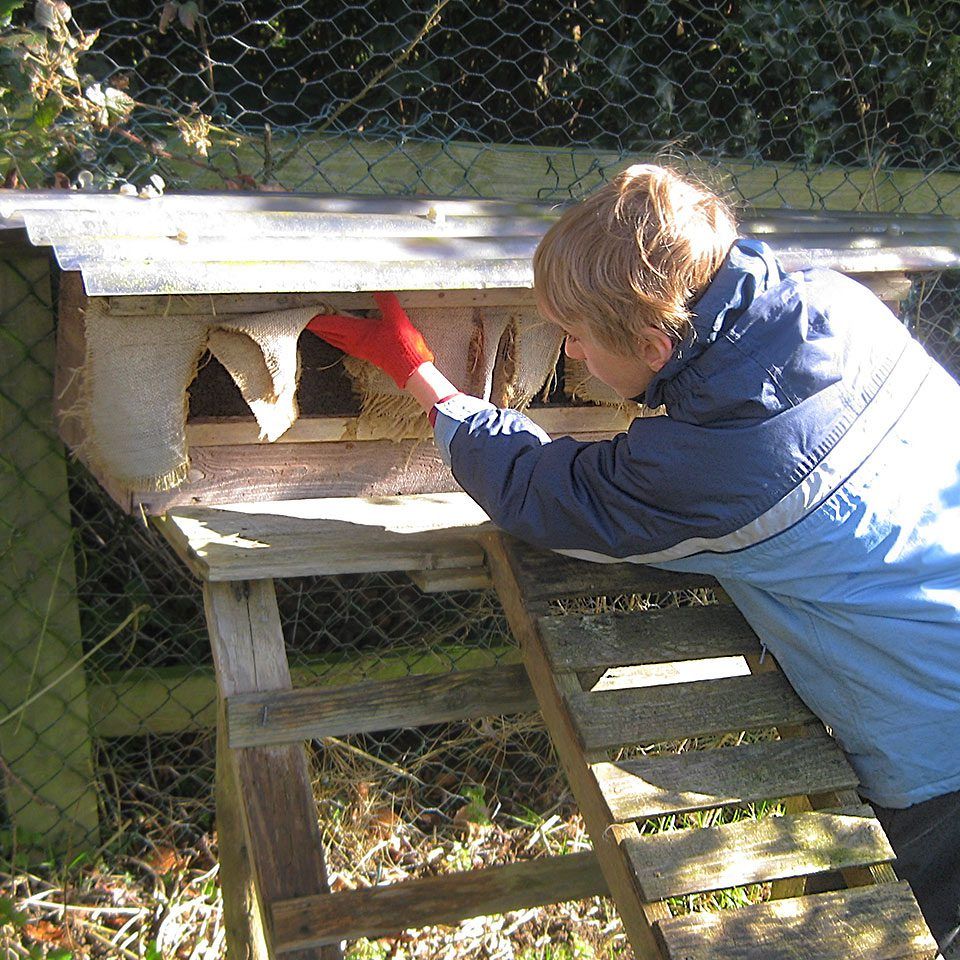
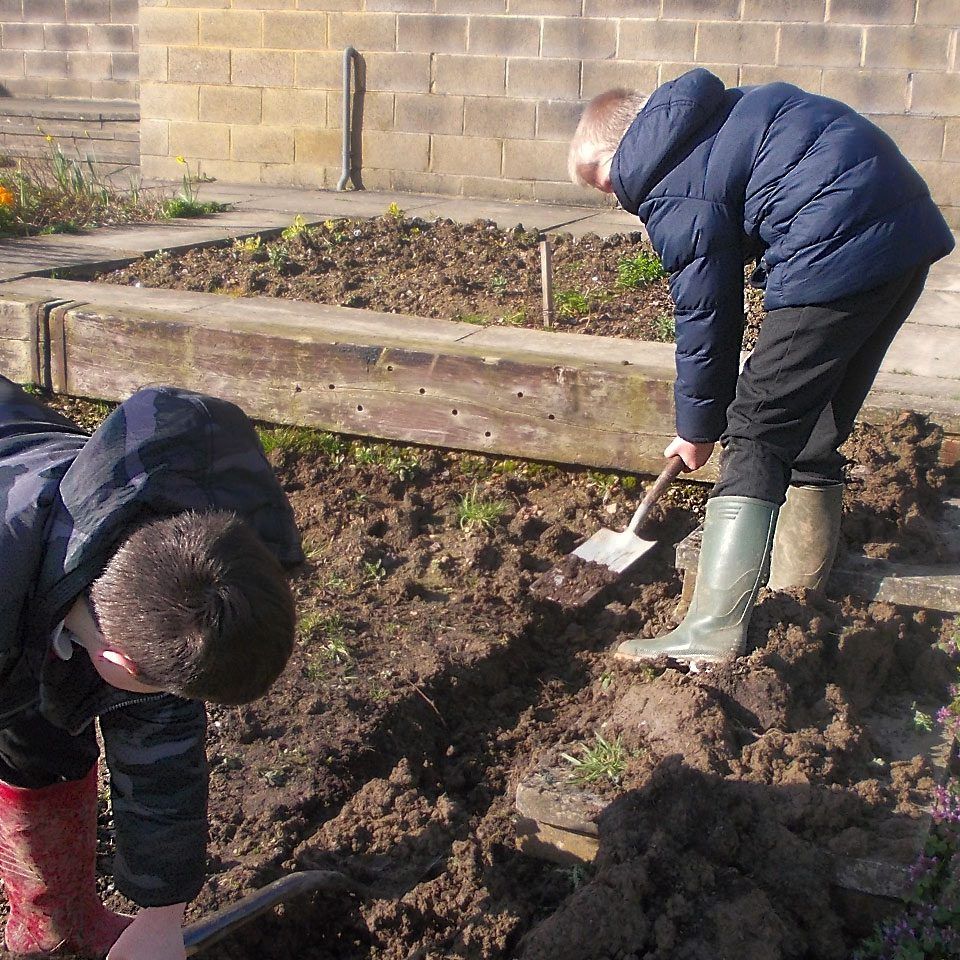
Fruit Trees
We have planted several fruit trees, some of them being old Sussex varieties. Birch class look after the trees. We realise that all the trees we have are planted for future generations to enjoy. We also love eating the delicious fruit they produce.
Sustainable Recycling
Every class has a blue bin to recycle materials. These are emptied in our big bin outside. We also use boxes e.t.c to make models and use containers for experiments e.t.c.
Healthy Eating
Using our own produce, we know how delicious fresh food is. Everybody is encouraged to bring at least one piece of fruit to eat at morning play. Most bring more than one piece. We try and make sure our lunch boxes are healthy and that we eat a balanced diet. Fresh water is available all day. We all enjoy being outside and enjoy exercising. We love to cook and use our own produce to make yummy food.
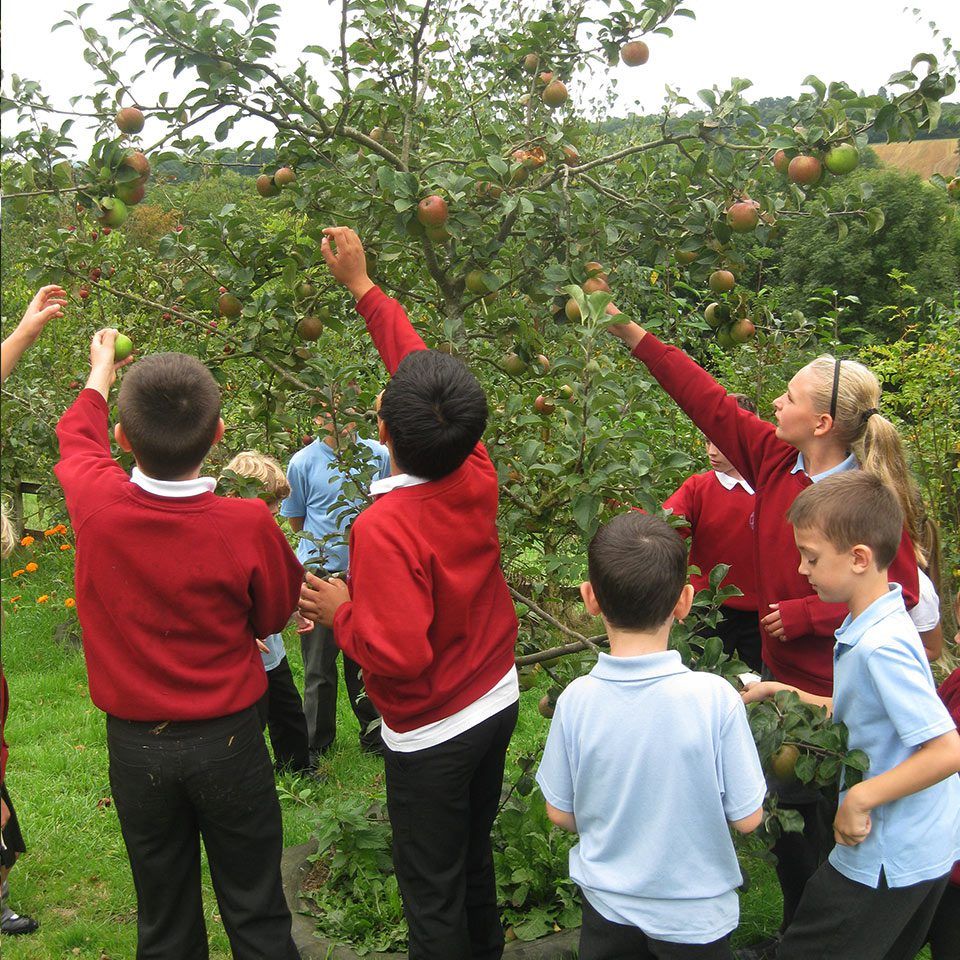
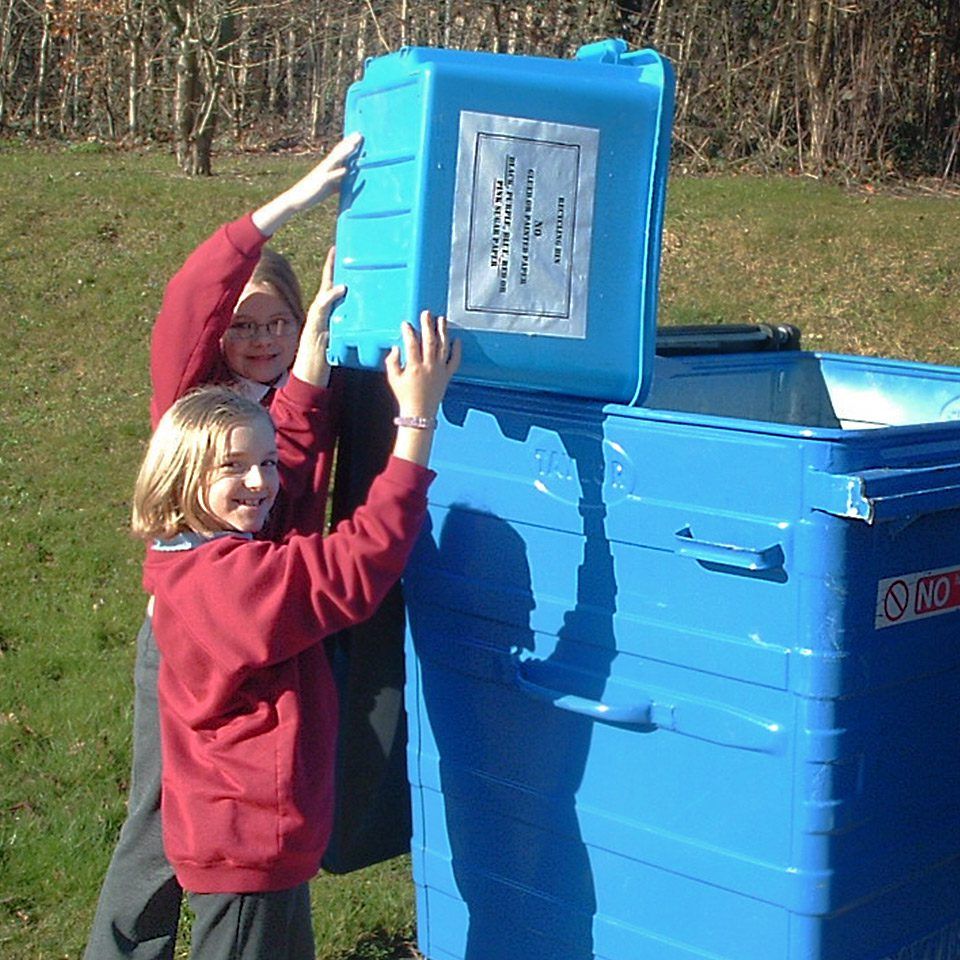
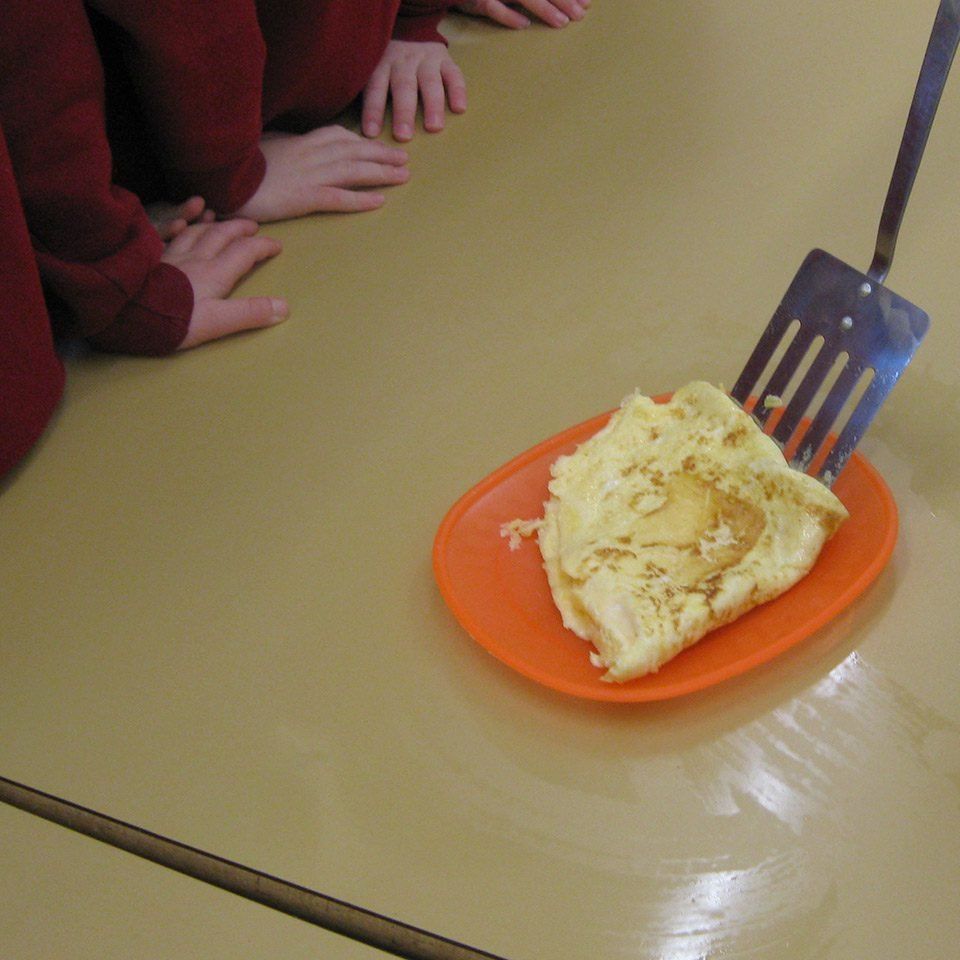
Sustainable Composting
We use two forms of composting. The first is the traditional way where we empty waste into a big bin and turn the compost. The second is by using worms to help us. All the remains of our fruit at playtime, grass cuttings, chicken manure, plants e.t.c go into the bins. This is then used to enrich the soil for growing plants.
Bugs And Garden
At the back of the school, most classrooms back onto a quiet garden with a beautiful view. This area is used frequently by the children in many lessons. From painting scenery in art, to measuring in maths, to exploring for bugs in science, to planting vegetables and much more. The space is dedicated to children enjoying learning outside.
Sometimes the children can use the space to enjoy the peace and quiet.
Caring For Our Local Environment
We manage a pond on farm land near to the school. Every few years the willow and ash are coppiced back so that other plants can grow. We have constructed staging points so that we can safely pond dip. We are building up an interesting data base of all the flora and fauna we see here.
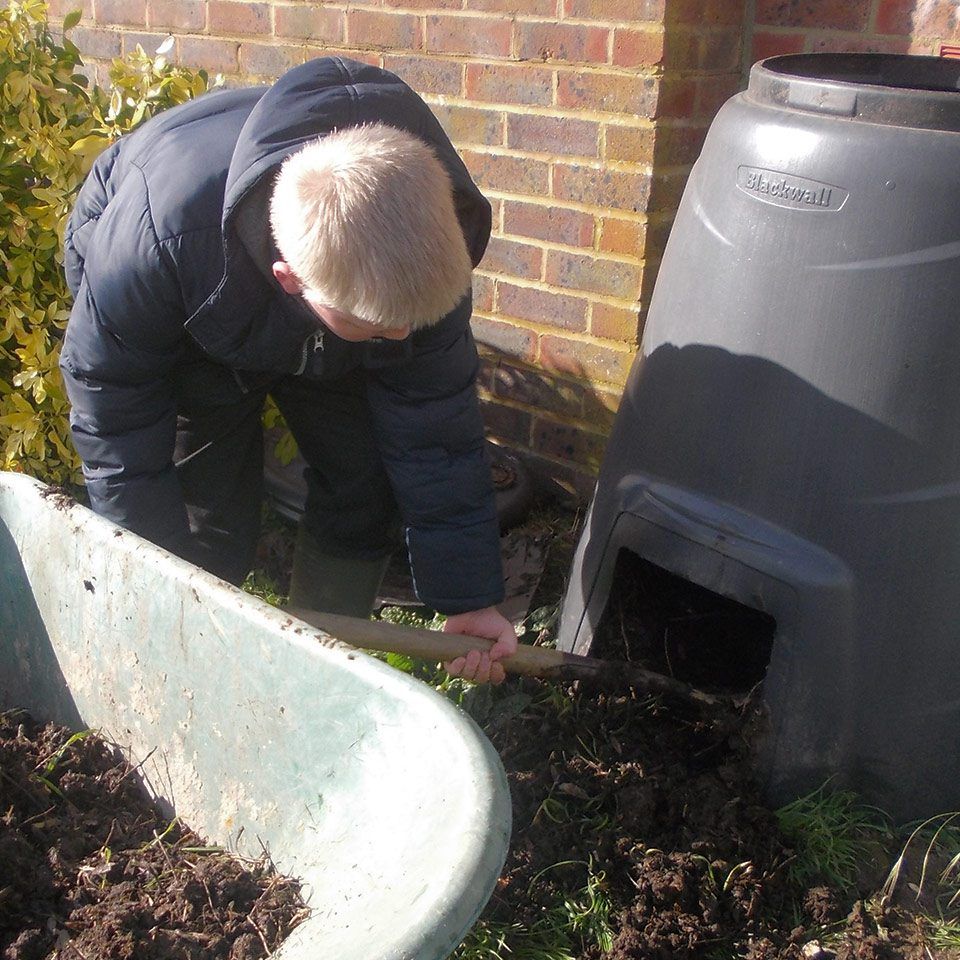
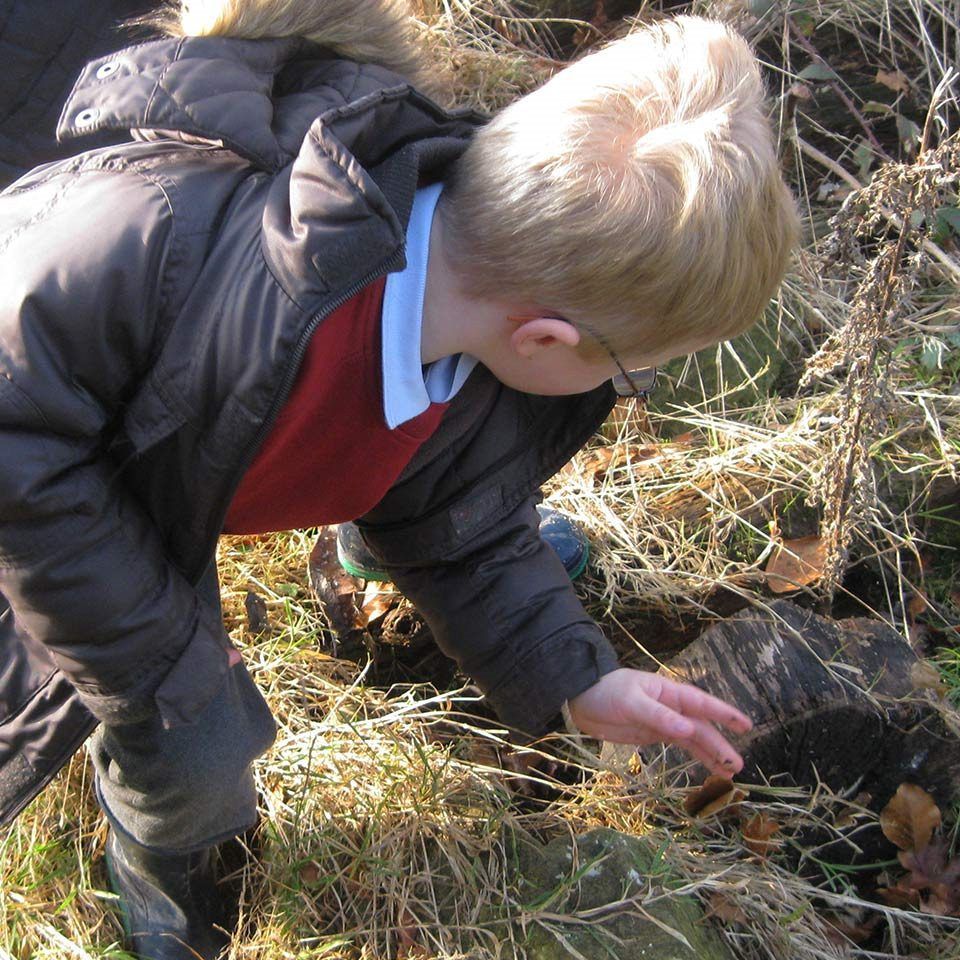
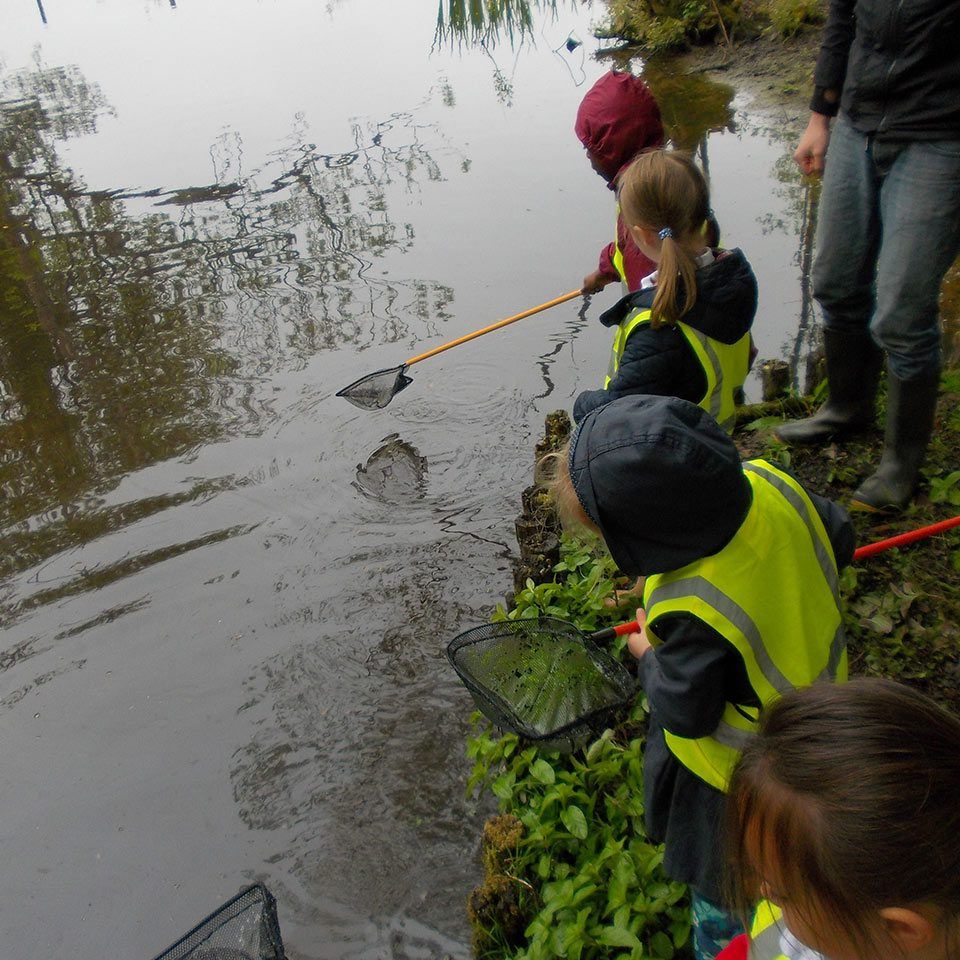
Outside Classroom
This is an exciting venture in which all classes are involved. Maple Class are our Womblers who grow sunflowers and purchase our seeds and plants. Cherry Class look after the Bees. Birch Class look after the garden and take part in weekly Forest School sessions. Holly Class take part in the Better Energy Awards. Willow class incubate the eggs and learn about the chickens. We all enjoy cooking with the food we produce. Links with the local farms and a scheme of work developed by the school help the children develop the knowledge needed to fully understand how to become stewards of the Earth. We also have links with other organisations such as FACE (Farming and Countryside Education) and High Weald Heroes.
Contact Info
01342 715412
office@turnershillschool.org.uk
Church Road, Turners Hill Crawley RH10 4PA United Kingdom
Term Dates
-
Autumn Term 2023Item Link List Item 1
Starts: Monday 4th September
Half term: Monday 23rd October - Friday 27th October
Ends: Friday 15th December
Inset days: Monday 1st September
-
Spring Term 2024Item Link List Item 2
Starts: Tuesday 2nd January
Half term: Monday 12th February - Friday 16th February
Ends: Thursday 28th March
-
Summer Term 2024Item Link
Starts: Monday 15th April
Half term: Monday 27th - Friday 31st May(including Bank Holiday)
Ends: Thuuesday 23rd July
INSET Days: Monday 3rd June, Friday 28th June, Monday 22nd July, Tuesday 23rd July
Turners Hill CofE School is committed to safeguarding and promoting the welfare of children and young people and expects all staff and volunteers to share this commitment.